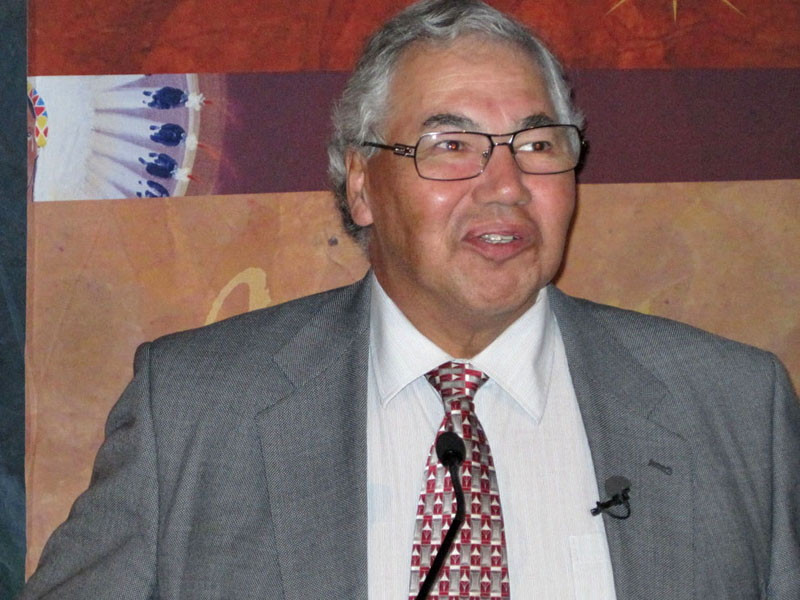Residential schools commission about more than abuse
Commission’s mandate includes compiling historical record, supporting communities
After over a year marred by infighting and dispute, the Indian Residential Schools Truth and Reconciliation Commission (TRC) now has a new set of commissioners and is two months into its five-year mandate.
Justice Murray Sinclair, the new chairperson of the TRC, spoke to a packed lecture hall at the University of Winnipeg last week. The lecture highlighted the broad mandate of the commission and clarified that abuse – sexual, physical or otherwise – was only one aspect of the reconciliation process.
“It bothers me that we have to think about abuse in terms of whether someone was hit or sexually violated,” said Kim Hunter, director of outreach and communications for the Institute for Women’s and Gender Studies.
Abuse can take the form of stripping a person of their rights and alienating them from their family, said Hunter.
Sinclair said the commission was largely concerned with the legacy of residential schools and that the notion of abuse was subordinate to the larger question of human rights.
The commission’s mandate includes gathering information for the purposes of reconciliation and to compile a record of the residential school legacy. This mandate has many intrigued and ready to get involved.
“We will assist in whatever way we can,” said Ruth Oulette of the Long Plain First Nation, an Ojibway community in south-central Manitoba.
The community has committed to a project that would see a residential school in Portage la Prairie converted into a museum and healing place for former students.
“We need to do a lot of fundraising,” said Oulette. “The museum has been on hold due to a lack of funding … A lot of residential school survivors went there and it could be an educational and healing place for them.”
It is possible the museum could receive funding from the TRC, which is mandated to support commemorative events and community initiatives.
“A lot of commemoration activities come from the ground up,” said Rod Carleton, TRC communications officer. “If a community wanted to preserve an old school, the commission is willing to look at all ideas and determine how doable it is.”
Community initiatives need to meet certain criteria before receiving TRC support, such as an educational element, said Carleton.
U of W is beginning many educational initiatives in response to the TRC mandate.
Three courses this semester will feature a component on residential schools and the reconciliation process, with an added feature that would see students quilting responses to the residential school issue.
“It is an emotionally difficult thing for students to learn about issues of racism and colonialism, so we decided to include a component about how women live with these issues in their lives,” said Hunter.
Published in Volume 64, Number 5 of The Uniter (October 1, 2009)







